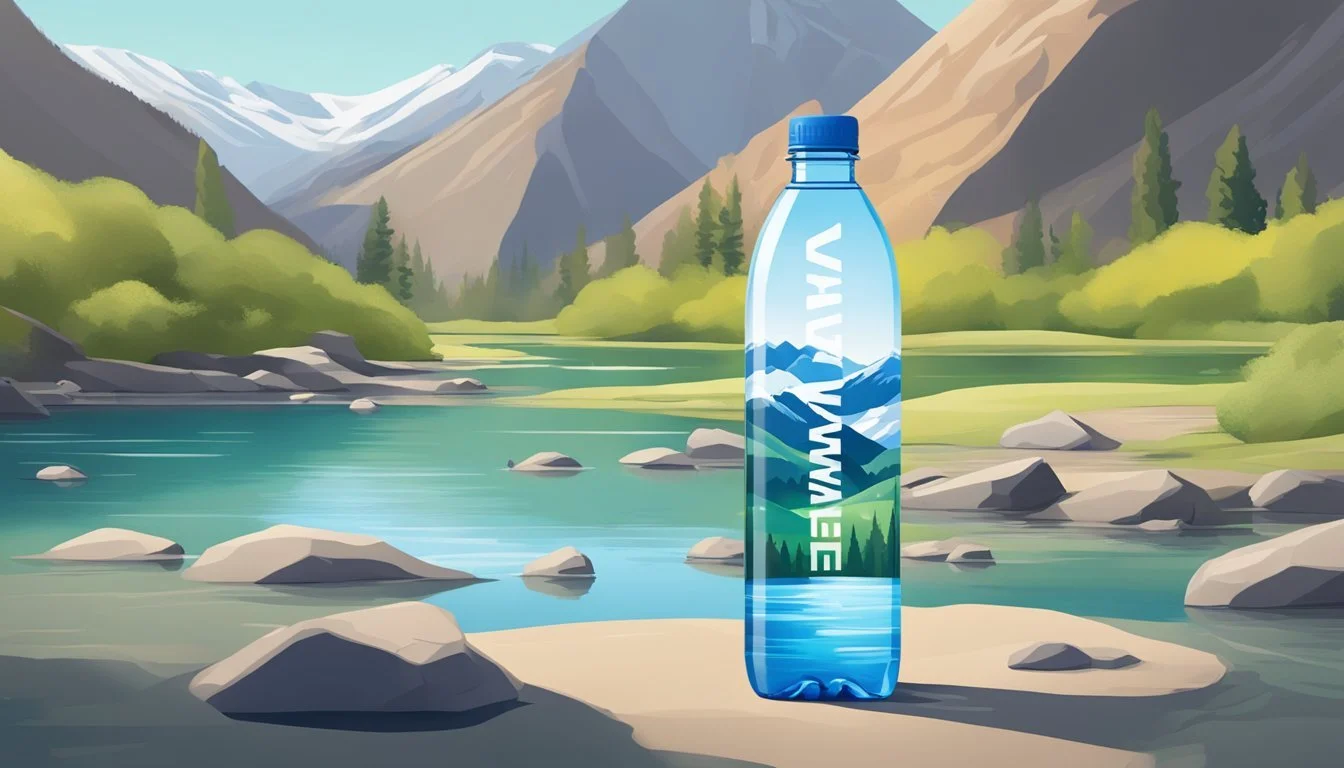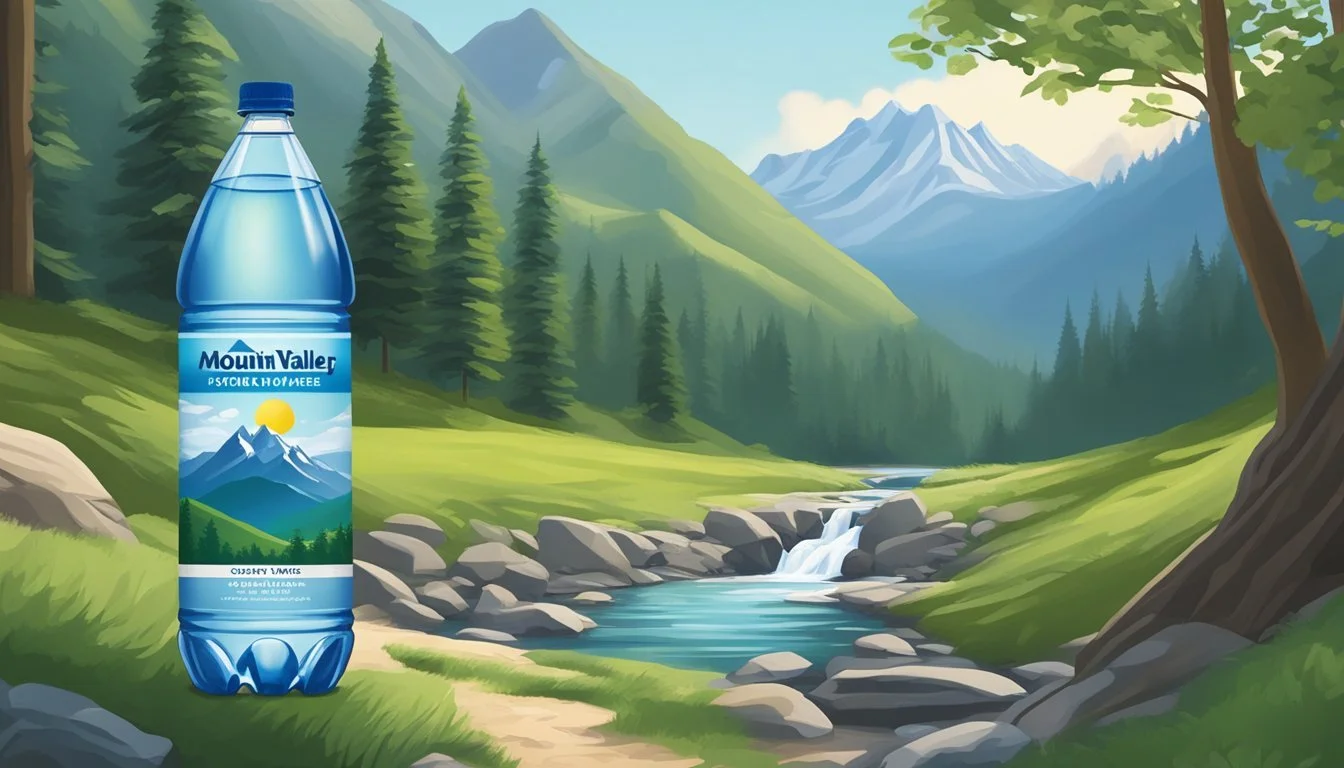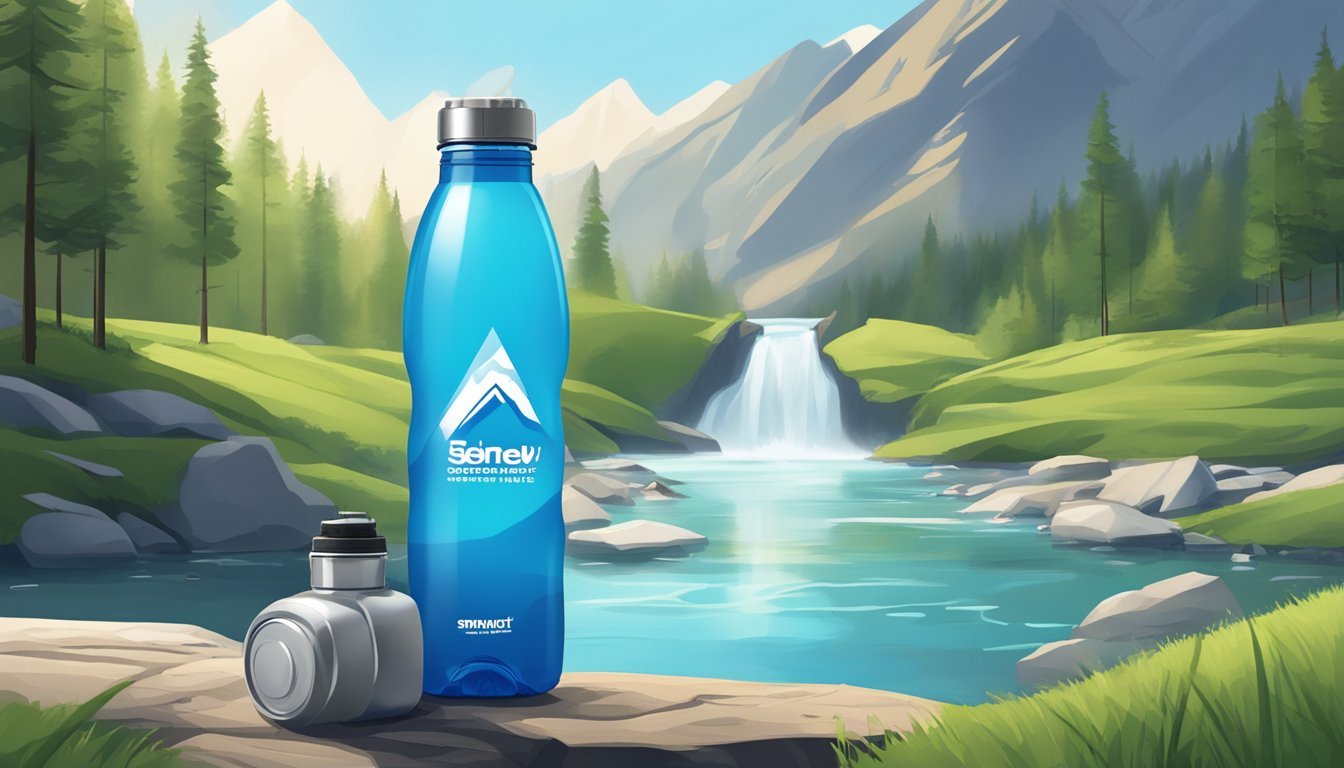Mountain Valley Spring Water vs. Smartwater
Comparing Quality and Taste
In recent years, the demand for bottled water has soared as consumers seek convenience and, often, healthier alternatives to sugary drinks. Amidst a plethora of options, Mountain Valley Spring Water and Smartwater have emerged as prominent players in the industry. They are both touted for their unique purification processes and quality, yet they offer distinctly different experiences to the consumer. Mountain Valley draws its water from a natural spring in Arkansas, boasting a natural filtration process and a rich blend of minerals. On the other hand, Smartwater, produced by Glacéau, utilizes vapor distillation, a method inspired by the hydrologic cycle, with added electrolytes for taste.
The decision between Mountain Valley Spring Water and Smartwater typically hinges on individual preferences across a range of factors, including taste, source, and the purification process, among others. Mountain Valley’s natural mineral content is a product of the water slowly percolating through geological formations, which imparts a distinctive taste and mineral profile that some consumers prefer. Contrarily, Smartwater’s appeal lies in its purity and the added electrolytes, which aim to mimic the taste and revitalizing qualities of natural spring water without the minerals.
Determining which bottled water is superior is not straightforward, as it largely depends on the consumer’s personal values and taste. For those who prioritize water from a natural spring, Mountain Valley may hold the upper hand. However, for consumers interested in the technological purification and enhancements of water, Smartwater could be the better choice. Each brand's method reflects a deep commitment to providing a high-quality product, yet they cater to different segments within the market. In choosing between the two, one must consider the nuances that define their respective appeals.
Overview of Bottled Water Industry
The bottled water industry has seen exponential growth, driven by consumer demand for convenience and perceptions of purity. The market features a diverse range of brands and products that cater to various consumer preferences.
History and Growth
The bottled water industry's roots can be traced back centuries, but it wasn't until the 20th century that it evolved into the commercial market known today. Notably, since the late 1970s, the industry has experienced considerable growth. Technological advancements in water purification and bottling processes have enabled brands to offer products that meet stringent safety and taste standards. Companies like Nestlé, with its Pure Life brand, and Evian have been key players in promoting bottled water globally.
Major Water Brands
The market is dominated by several key brands, each with its own appeal:
Nestlé: Offers a variety of waters, including Pure Life and international brands like San Pellegrino.
The Coca-Cola Company: Owns Dasani, sourced from local water supplies, and premium brand Smartwater, vapor-distilled with added minerals.
PepsiCo: Produces Aquafina, also sourced from public water and purified through a rigorous seven-step process.
Exotic brands such as Fiji, drawing water from artesian aquifers, and Voss, known for its stylish bottling and artesian source from Norway, target the premium market segment. Mountain Valley Spring Water is recognized for its balance of pH and mineral content, often heralded as a top choice in the United States.
Consumer Demand and Preferences
Consumer preferences tend to vary based on factors like taste, purity, brand reputation, and environmental impact. There has been a substantial shift toward eco-conscious packaging and product sourcing. However, market demand for bottled water persists due to its convenience and the widespread perception of bottled water being a healthier alternative to tap water. Despite this, there was a slight decrease in sales growth in 2008, potentially indicating a burgeoning awareness among consumers regarding the environmental footprint of bottled waters.
Understanding Water Sources
Before diving into the comparison between Mountain Valley Spring Water and Smartwater, it is essential to grasp the different types of water sources. This understanding lays the foundation for evaluating the quality and benefits of the water provided by these brands.
Natural Spring Water
Natural spring water originates from underground aquifers and is collected at the spring's source. It is praised for its purity and natural mineral content. Mountain Valley Spring Water is an example of natural spring water, which flows from a natural spring and is bottled at the source.
Mountain Valley and Smartwater Sources
Mountain Valley Spring Water is sourced from a single spring located in the Ouachita Mountains of Arkansas, renowned for its unique mineral composition and taste. In contrast, Smartwater undergoes a process of distillation and then has electrolytes added for taste, rather than coming from a natural spring.
Tap Water vs. Bottled Water
Tap water comes from municipal water sources and is treated to meet drinking water standards. Its quality can vary based on the locality and the effectiveness of the treatment process. Bottled water, like Mountain Valley and Smartwater, often boasts of higher purity levels, and some consumers prefer the taste and convenience of bottled water over tap water. However, the environmental impact of bottled water is a concern due to the use of plastic and the carbon footprint associated with transportation.
Health and Quality Aspects
When examining the health and quality aspects of Mountain Valley Spring Water and Smartwater, it's essential to consider the presence of minerals and electrolytes, pH levels, adherence to safety standards, and the methods used for filtration and removing contaminants.
Minerals and Electrolytes
Mountain Valley Spring Water is sourced from a natural spring in Arkansas, lending to its content of various minerals such as calcium, magnesium, and potassium, which play key roles in maintaining electrolyte balance in the body. Smartwater, on the other hand, is distilled and then enhanced with added electrolytes for taste, rather than containing naturally occurring minerals.
PH Levels and Alkalinity
The pH level of water can affect its taste and perhaps its health impact. Smartwater states that after distillation, they add electrolytes to create a pH that is slightly alkaline, which some people prefer for its taste. Mountain Valley Spring Water naturally has a pH level that is mildly alkaline, which may contribute to a smooth taste.
FDA Regulations and Safety Standards
Both Smartwater and Mountain Valley Spring Water must comply with the FDA standards for safe drinking water, which include limits on contaminants like lead, arsenic, and PFAS chemicals. These standards ensure that consumer health is protected, and the water is safe to drink.
Contaminants and Filtration Processes
Mountain Valley Spring Water undergoes natural filtration through rock layers that also impart minerals, and it is further treated to meet safety standards. Smartwater, being distilled, boasts a purification process that involves removing most contaminants and then reintroducing electrolytes. The focus for both brands is to achieve purity and safety in their bottled water products.
Environmental Impact and Sustainability
The environmental impact and sustainability of bottled water are critical factors in today's eco-conscious marketplace, where consumers and companies alike are held to high standards. Factors such as the bottling process, packaging materials, and the initiatives taken by the water brands themselves all contribute to their overall ecological footprint.
Bottling Process and Packaging
Mountain Valley Spring Water and Smartwater employ different bottling processes and packaging materials that have distinct environmental implications. Mountain Valley Spring Water is known for using reusable glass bottles, which can be more environmentally friendly over their life cycle, despite the higher energy required for their production and the resources needed for recycling. In contrast, Smartwater primarily utilizes plastic bottles which, while convenient, add to the environmental concerns regarding plastic waste and mitigation of their long-term impact on ecosystems, particularly when it comes to groundwater contamination and marine pollution.
The International Bottled Water Association advocates for measures that reduce the environmental footprint of bottled water, yet the ideal is minimized use of single-use containers irrespective of material.
Plastic vs. Glass Bottles
Mountain Valley Spring Water:
Primary Packaging Material: Glass
Pros:
Reusable and recyclable
Does not leach chemicals
Cons:
Heavier, increasing transportation emissions
Requires more energy to produce compared to plastic
Smartwater:
Primary Packaging Material: Plastic
Pros:
Light-weight, reducing transport emissions
Energy-efficient production
Cons:
Contributes to plastic pollution
Less effective recycling rates
Both glass and plastic have their environmental trade-offs, influencing companies' decisions based on their sustainability goals and the expectations of their consumers regarding environmentally friendly packaging.
Water Brand Initiatives
Mountain Valley Spring Water has a legacy of being environmentally-minded, working towards protecting their spring located in the Ouachita Mountains and focusing on sustainability. The brand's dedication to the planet is evident through efforts to maintain their natural spring and surroundings.
Smartwater, produced by Coca-Cola, has global initiatives aimed at reducing their carbon footprint, improving recycling infrastructure, and promoting the sustainable sourcing of water. These efforts align with growing consumer demands for more responsible environmental stewardship in the beverage industry.
Bottled water companies are increasingly evaluated based on their environmental impact and sustainability, with both Mountain Valley Spring Water and Smartwater taking steps to address these concerns. Their approaches reflect a balance between operational practicality and the pressing need for environmental preservation.
Comparative Analysis: Mountain Valley vs. Smartwater
In this analysis, the focus is on evaluating Mountain Valley and Smartwater in terms of taste, purity, branding, and their recognition in the market to understand which bottled water might be considered better.
Taste and Purity
Mountain Valley Spring Water is heralded for its natural purity and taste. Sourced from Garland County, Arkansas, it is often described as having a clean and light taste with a hint of sweetness due to its natural minerals. Smartwater, on the other hand, boasts a vapor-distillation process, which it claims mirrors the hydrologic cycle, resulting in pure water with added electrolytes for a distinctive taste.
Mountain Valley:
Taste: Clean, light, slightly sweet due to natural minerals.
Purity: Natural spring water with no additional processes.
Smartwater:
Taste: Pure, crisp, enhanced with electrolytes.
Purity: Vapor-distilled with added electrolytes.
Branding and Market Positioning
Smartwater has positioned itself as a premium lifestyle brand, associating with celebrities and wellness trends. Their marketing emphasizes the technology behind their vapor-distillation process and the addition of electrolytes for a unique taste. On the other hand, Mountain Valley pitches itself as offering "America's premium water," highlighting its source and heritage since 1871 with a strong emphasis on the natural aspect of their product.
Mountain Valley:
Branding: Natural, heritage-rich, premium American spring water.
Market Positioning: Premium, natural purity, long-standing history.
Smartwater:
Branding: Technological, modern, associated with lifestyle and wellness.
Market Positioning: Innovative, premium lifestyle water with a focus on purity and taste.
Awards and Recognitions
As for awards and recognitions, Mountain Valley has received accolades for its quality and taste, including some best water awards. These endorsements tend to reinforce the brand's reputation for natural purity and taste. While Smartwater does not have as many awards concentrated on taste, its branding strategies and market dominance have earned the brand significant recognition in the premium bottled water segment.
Mountain Valley:
Awards: Multiple best bottled water awards for taste and quality.
Recognition: Esteemed for natural purity and heritage.
Smartwater:
Awards: Not as award-centric, focus is on branding excellence.
Recognition: Well-known for its innovative branding and premium position in the market.
Consumer Information
When choosing between Mountain Valley Spring Water and Smartwater, consumers should pay close attention to label information, quality reports, and the availability of these products in the market.
How To Read Labels
Consumers should examine the labels on Mountain Valley Spring Water and Smartwater for source information and additional ingredients. Mountain Valley Spring Water is typically sourced from a spring and contains natural minerals, while Smartwater undergoes vapor distillation and includes added electrolytes for taste. Labels also indicate if the water has gone through processes such as reverse osmosis, distillation, or carbon filtration.
Quality Reports and Certifications
Quality reports and certifications provide insights into the water's purity and any potential contaminants. Smartwater and Mountain Valley Spring Water often have their quality reports accessible online. Certifications from organizations like NSF International or the International Bottled Water Association can validate claims on the label regarding water quality.
For Mountain Valley Spring Water: Look for quality reports on their official website
For Smartwater: Check for available reports or certifications indicating the results of their vapor distillation process
Access and Availability
Consumers can find Mountain Valley Spring Water and Smartwater at various locations, including grocery stores, convenience shops, and specialty retailers like Whole Foods. Availability may vary by region, but generally, Smartwater, as a product of The Coca-Cola Company, tends to have broader distribution and therefore may be more conveniently accessible than Mountain Valley Spring Water.
Mountain Valley Spring Water:
Specialty stores
Online retailers
Smartwater:
Broad distribution in mainstream retail outlets
Convenience stores
Vending machines
Identifying these factors on labels, through reports, and by noting where these waters can be purchased equips consumers with the information required to make an informed decision.
Final Considerations
In the choice between Mountain Valley Spring Water and Smartwater, consumers weigh multiple aspects that influence their decision. These considerations revolve around cost effectiveness, convenience of acquisition, and individual taste preferences.
Cost vs. Convenience
Mountain Valley Spring Water:
Cost: Typically more expensive due to its premium branding and natural sourcing.
Convenience: Available in glass bottles, which may limit availability in some stores.
Smartwater:
Cost: Generally more affordable and offers value for money.
Convenience: Widely available and often found in numerous retail locations.
Consumers must decide whether the premium price of Mountain Valley Spring Water aligns with their budget and if its availability matches their demand for convenience.
Personal Preferences
Different factors influence an individual's choice of bottled water:
Taste: Some may prefer the unique mineral profile of Mountain Valley Spring Water, while others might opt for the vapor-distilled taste of Smartwater.
Packaging: Environmental concerns and health implications regarding plastic use might sway some consumers towards glass-bottled Mountain Valley Spring Water.
Brand Loyalty: For those who have established a preference based on brand reputation, this could be a deciding factor.
The bottom line is that the decision between these two brands typically hinges on one's personal priorities in water consumption.







